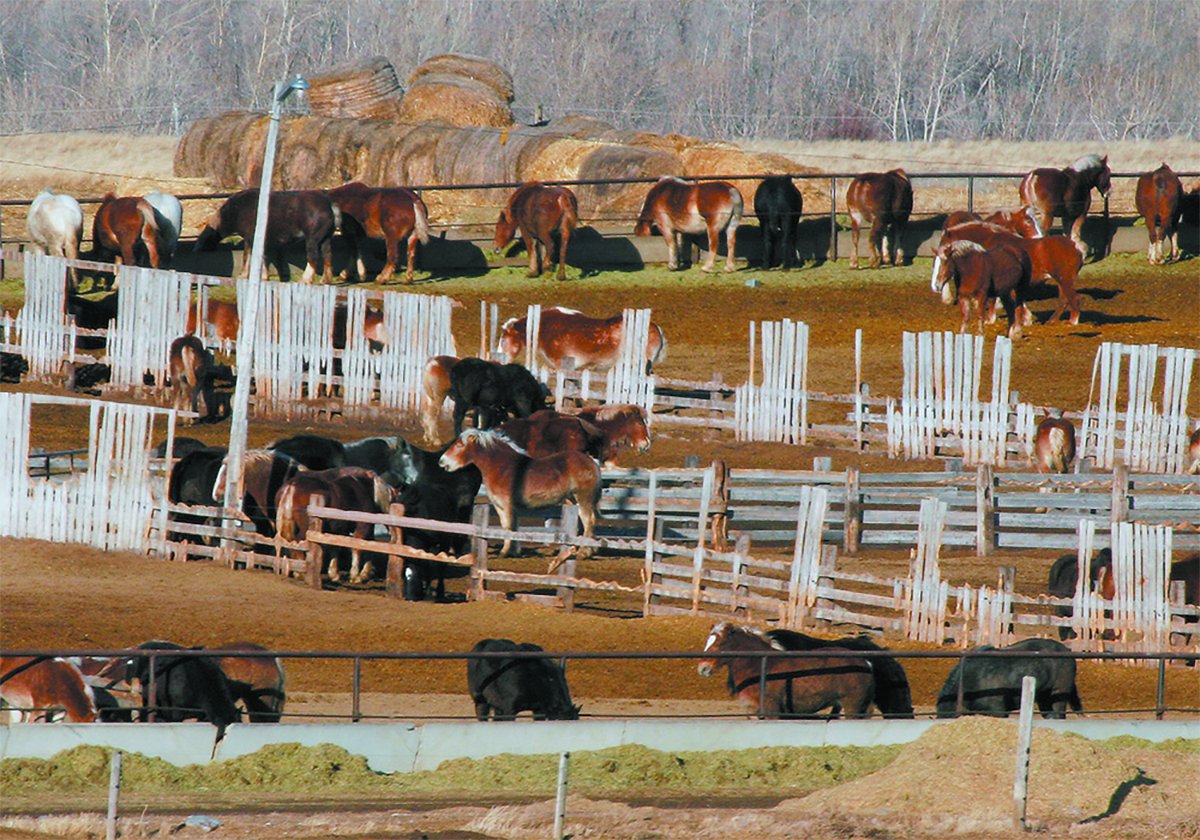RED DEER – Reducing pain and discomfort among farm animals is the aim of a series of new welfare research projects.
Animal husbandry, early detection of disease and stress, mitigating the effects of invasive procedures as well as environment and housing projects are being studied with funding from Ottawa and Alberta. Additional support comes from commodity groups and the Alberta Farm Animal Care Association.
Long-term research into stress during transportation is under way at Agriculture Canada’s Lacombe research centre.
“It is one time in the animal’s life when it is subjected to substantial stress,” said researcher Nigel Cook of Alberta Agriculture at the recent animal care association meeting.
Read Also

Canada’s slaughter horse industry lacks transparency
The lack of clear reporting and public access to data keeps the industry largely hidden, leaving questions about humane treatment and traceability unanswered.
Cook joins several researchers who are looking for ways to reduce stress on transported animals. Animals under such stress may lose weight, become ill or die. Meat quality may also be affected, causing beef to turn dark and dry. A dark cutter carcass may be devalued by at least $250.
Another project looked at feeding weaned calves nutrient-enriched molasses at auction facilities to improve their health before they were shipped to a feedlot. Findings showed they lost less weight and appeared less stressed when received at the feed yard.
Treating calves with steroids also had a positive impact.
New research has started on feeding and transport regimes for elk and bison before slaughter.
John Church, animal welfare specialist with Alberta Agriculture, is looking at housing for poultry and sows.
He and researchers at the University of Alberta are redesigning laying hen cages. The new cages come from Europe and provide hens with more space, perches and nesting areas. His team is comparing these with conventional cages.
A sow housing project is comparing the costs and benefits of stalls, electronic sow feeding systems and open systems.
“I am convinced there are many different ways to raise sows,” Church said.
Another project involves spent hen euthanasia.
All laying hens in Alberta must be euthanized on farm. However, producers want better equipment to ensure the birds are killed quickly and painlessly.
Scientists like Church heard anecdotes that some birds survived and suffered broken bones.
His research showed electrocution may not work as well as previously thought because the voltage doesn’t penetrate feathers and about eight percent of birds survive.
Gassing the birds in a carbon dioxide chamber may be more effective.

















